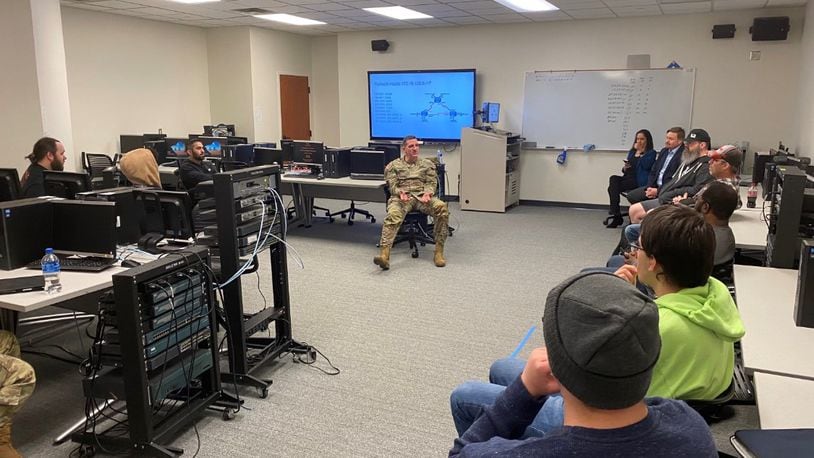Credit: US ARMY
Credit: US ARMY
Accompanied by a young officer who graduated from Wayne High School and UD, 2nd Lt. Alex Otto, these were the kinds of face-to-face visits that COVID-19 had made difficult if not impossible two years ago.
“It is critical for us to rebuild those relationships and to get community leaders on board to support us,” the one-star general said in a recent interview with the Dayton Daily News. “It truly takes a whole community to help find the right people for the Army; we can’t do it alone.”
And for Craft, 51, the visits turned out to be a personal boost.
“Getting back to your hometown and just telling your Army story, certainly it invigorated me,” he said.
The 1993 graduate of the U.S. Military Academy, Craft found himself connecting to young people who may not have a father or grandfather with military experience. As a result, some young people may lack armed forces role models, so the meetings were a chance to, as he put it, “correct some misconceptions.”
One “misconception:” Serving as a soldier is simply picking up a rifle “running through the woods,” he said.
Craft himself may be the example that defeats that image. He is commandant and chief of cyber at the U.S. Army Cyber School at Fort Gordon, Ga.
He’s on the front line of teaching officers and enlisted personnel how to defend against cyber attacks. He leads a technical curriculum – which he called “courseware as code” – that is constantly updated as technology, threats and current events change.
“It’s really how to disrupt, defeat, destroy a threat that is out there,” Craft said. “And it’s obviously to secure DOD (Department of Defense) infrastructure.”
Asked if the Army is in a special state of readiness because of the Russian war or is always poised for defense, Craft said simply: “I’ll say both. We are engaged.”
But his own career speaks to the increasingly technical nature of military careers.
“We are clearly looking for people who are interested in STEM,” Craft said.
Part of his message focused on what he called military career benefits “that last a lifetime” — stability, jobs security, a pension, hiring bonuses of up to $50,000, allowances for housing and meals and 30 days of paid vacation a year.
“I’m just a local kid,” Craft said. “I grew up in the area. I know the teachers. I know the area. I sat in those seats.”
While the pandemic challenged traditional military recruiting methods, even before COVID, the Army had faced challenges. The branch missed its target for fiscal year 2018 by 6,500 soldiers.
“Very limited face-to-face contact over the last two years has had an impact on our relationships with our communities,” said Army Maj. Gen. Kevin Vereen, who leads the Army’s recruiting efforts.
The Army cited studies that show about 75% of today’s young people do not understand military careers.
“We find that people often change their impression of the Army when they are able to talk directly to a soldier,” Vereen said.
The Army says it offers 150 occupations, with opportunities for technical training, health care, money for college classes and certifications and other benefits.
But the bottom line needs to be a willingness to serve, Craft said.
“We want you to serve because you want to serve our great country,” he said.
About the Author
